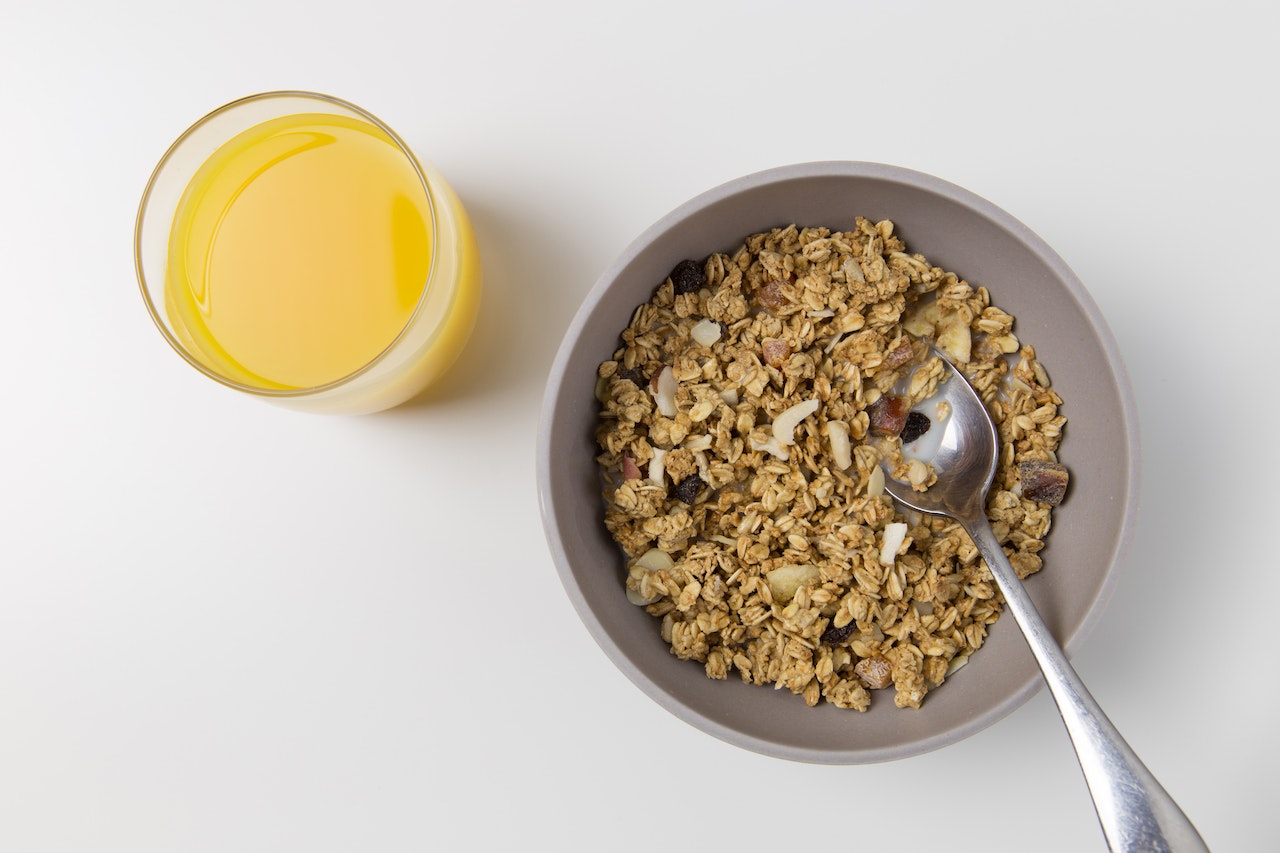
Hungry During Labor? What to Eat & Drink According to Your Labor Doula
Blogs
Hungry During Labor? What to Eat & Drink According to Your Labor Doula
You might be thinking that you won’t have time to get hungry when labor signs start. After all, you’ll be busy wondering about how to give birth to your baby, right?
Well, you might be surprised, but some women do feel hungry during labor. You might be one of them. So the big question is, should you eat and/or drink if that’s the case?
Well, “NPO”, a medical term that came from the Latin “nil per os” meaning “nothing by mouth” has been observed since the 1940s. However, after some time and new research, a lot of experts have begun allowing a good gobble and gulp, besides mere ice chips.
While practitioners might have varying takes on this topic, researchers had pointed out that a proper light meal could actually be beneficial in maintaining women’s energy during labor. It is also noted that restricting meals during labor could actually cause stress, headaches, and vomiting.
This does not mean, however, that you are free to eat or drink whatever you want during labor. Cross out the steak and the cheeseburger (sorry!) and check out these things that you should know about eating and drinking during labor.
Why was eating and drinking during labor banned in the first place?
This rule began during the 40s after practitioners observed and documented several pregnant women who were in labor. Based on their theory, aspiration risk or simply swallowing troubles increased for pregnant women under anesthesia who had consumed food or acid during labor. This could cause severe inflammatory reactions that can result in serious complications.
Pregnant women have a higher risk of getting aspirated because of two reasons. First, the enlarged uterus of a pregnant woman puts upward pressure on the digestive tract. Second, progesterone—the hormone involved in pregnancy—relaxes the muscles which may allow the contents of the stomach to easily pass through the esophagus and into the lungs.
Why is eating and drinking during labor allowed now?
Over the years, the quest to make the process of giving birth a smoother and more natural process has borne fruit, no pun intended. Thanks to the extensive research of various health care professionals, regional anesthesia is now more commonly used. Unlike general anesthesia, regional anesthesia only affects certain parts of the body and poses less aspiration risk.
Another reason is that according to the stats shown by Web MD, women who are allowed to eat have an average of 16 minutes shorter labor time than women who aren’t. This means that birthing procedures can be done quicker and the lives of both the mother and the baby can be brought out of danger much faster.
If you think about it, it makes sense. It’s called “labor”, after all. And in any kind of labor, energy is spent. Since humans’ primary source of fuel is food, it’ll be easier to muster enough energy to push through the delivery.
Now that we know that aspiration today is almost nonexistent for healthy patients, and that eating during labor has actua; perks, it’s time to discuss what’s on the menu. Remember, you can’t eat just anything!
What can you consume during labor?
Below are some of the solid foods you may be allowed to eat during labor. Keep in mind that if you get the “go signal” on eating during labor, you will have limited options. Also, your appetite will be affected since you’re likely going to be nervous and excited.
Therefore, it is best if you can stick to healthy foods that are easy to digest, although foods that appeal to your taste can definitely provide you comfort during the early stage of giving birth.
Light snacks to make sure you have enough energy reserves and liquids to prevent dehydrations: these are your go-to types of food.
Ideal foods
Let’s start with the solids. You can eat the following:
- Bread with jam: Whole-wheat for extra energy yield. Toast the bread for the best taste. It might be blander than most foods but it will pack a lot of sustenance.
- Plain pasta: Sorry, we’re not talking about a full plate of your Italian favorite. Rather, just eat properly cooked pasta. Why plain? Well, you might be feeling nauseous and you might vomit if you eat anything more rich.
- Lean meat: You can turn this into a sauce and mix it with pasta if you’re looking for something that has more flavor. The meat will also provide you an extra boost of protein down the road.
- Protein oats: Oatmeal has always been a champion when it comes to pumping your carbs count. Combine it with some whipped egg whites as it cooks and you’ve got protein as well. Besides the lasting nutrients, it’ll keep you sated during the recovery period.
- Sweet potatoes: Sweet potatoes are rich in carbohydrates for energy. They also pack a lot of potassium and iron — two essential nutrients that’ll get depleted during labor.
- Jell-O: There’s always room for something sweet. It’s comforting and it goes down easily while still giving you an energy boost.
It will also be good for you to avoid foods that are fatty and rich in fiber especially as the day you are scheduled to give birth draws closer. Fatty and very fibrous foods can cause the digestive tract to consume the energy that you should be keeping in your reserves. The last thing you need on the day is diarrhea or heartburn.
Ideal liquids
Now that we’ve covered the solids, it’s time to move on to the liquids. There’s not really much you should look into since water is the go-to drink for labor. Chances are water is going to be enough for you in terms of taste and nutrient needs.
However, if your doctor lets you, you can consume other liquids. Clear broths are the best option besides good old H20. Broths carry a lot of nutrients, are very comforting, hearty and satisfying.
However, only consume low-sodium chicken or vegetable broths. Processed and too-flavorful soups may cause extreme thirst.
Your health care practitioner may also allow you to choose from an assortment of beverages. Examples are non-pulp juices, carbonated beverages, sports drinks, black coffee, or tea.
Decision-making will always be easier with a doula.
Giving birth will likely be one of the most nerve-wracking events in your life. Having a caring expert beside you along the way will give you extra comfort and assurance. Professional doulas can provide you with a wide variety of information, knowledge, skills, and support related to your pregnancy, especially when it comes to what to eat and drink during labor.
Doulas can help you prepare the right kinds and portions of food and drink during this critical time. You can concentrate on just pushing.
If you think you need that, reach out to us at Doulas of the Valley. All our doulas are uniquely equipped to serve families in Scottsdale, Paradise Valley and the surrounding areas with unparalleled pre and postpartum support.
Join our group of happy customers. Contact us today and get an extra pair of trustworthy hands with strong mental and emotional support.
We look forward to hearing from you!


